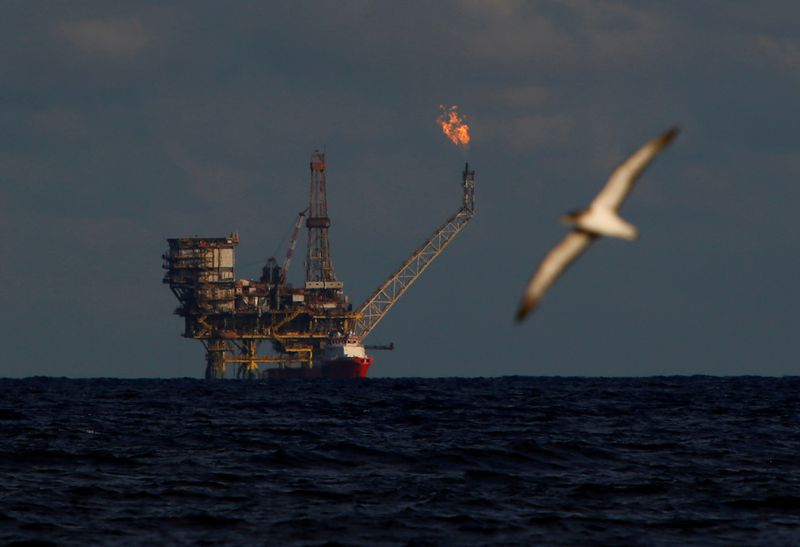By Florence Tan
SINGAPORE (Reuters) - Oil prices pared losses after earlier hitting multi-year lows on Monday as hopes that a bigger than expected production cut from OPEC and stimulus from central banks could offset economic gloom from the coronavirus outbreak.
Brent crude (LCOc1) was at $50.32 a barrel, up 65 cents, or 1.3%, by 0105 GMT, after earlier dropping to $48.40, the lowest since July 2017.
U.S. West Texas Intermediate crude (CLc1) hit a 14-month low of $43.32 a barrel, before recovering to $45.23, up 47 cents, or 1.1%.
Flight cancellations and travel bans by countries worldwide sparked fears about the global economy, leading to the biggest weekly stock market rout since the 2008 financial crisis last week. China's factory activity also shrunk at the fastest pace ever in February, underscoring the colossal damage from the coronavirus outbreak on the world's second-largest economy.
"On the one hand, it's pretty negative on worldwide crude oil and product demand," said Lachlan Shaw, head of commodity research at the National Australia Bank.
On the other hand, there was news Saudi Arabia was pushing for a million barrels per day cut to be agreed this week, while central banks globally were increasingly signalling an appetite to intervene and support markets by cutting interest rates, he said.
"So it's a balance and it's going to be pretty volatile."
Several key members of the Organization of the Petroleum Exporting Countries (OPEC) are mulling an additional production cut of 1 million barrels per day, more than the 600,000 bpd proposed last month, on growing fears that the virus outbreak will hit oil demand badly.
OPEC and its allies including Russia, a grouping known as OPEC+, have already been curbing oil output by 1.7 million bpd under a deal that runs to the end of March.
"Current prices do not work for most of the OPEC+ group as they stand and Russia is not as price agnostic as it endeavours to seem," said Helima Croft global head of commodity strategy at RBC Capital Markets.
"We think Saudi Arabia will likely be able to rally the rest of the producers for a cut of at least 1+ million bpd."
